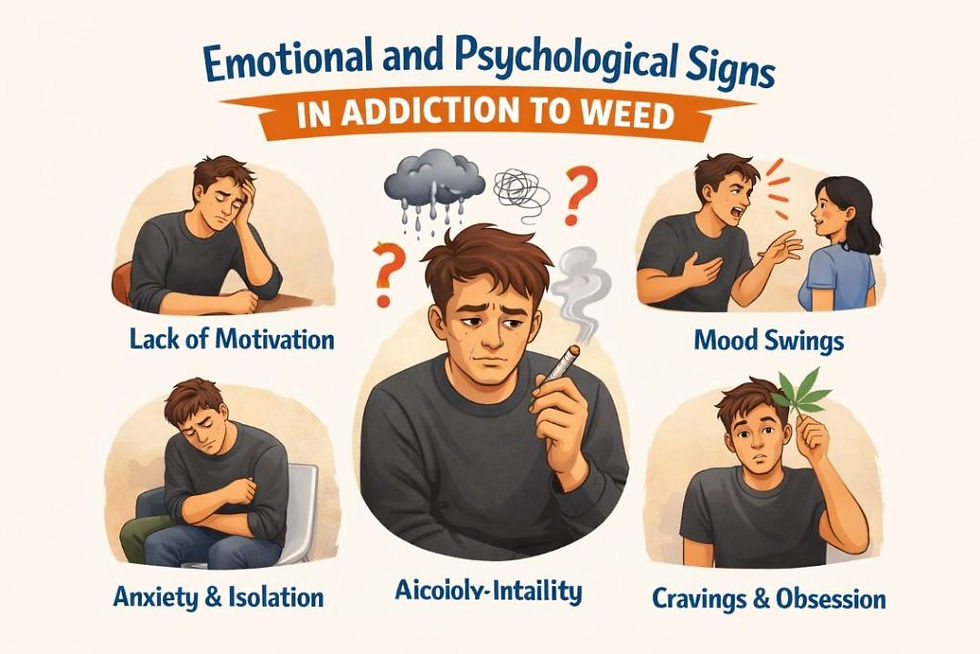DBT Therapy for Mental Health
- Felicia Parris

- Jun 11, 2025
- 3 min read
How DBT Therapy Works: A Beginner’s Guide to Emotional Recovery
When facing mental health challenges such as borderline personality disorder (BPD), depression, or anxiety, having the right tools and support is essential. One highly effective, evidence-based treatment is Dialectical Behavior Therapy (DBT). This structured approach combines cognitive-behavioral strategies with mindfulness practices to help individuals manage intense emotions and build healthier relationships.
At DeLand Treatment Solutions, we integrate DBT into many of our treatment programs to empower clients on their path to emotional wellness and long-term recovery.

What is DBT Therapy?
Dialectical Behavior Therapy was developed in the late 1980s by psychologist Dr. Marsha Linehan to treat individuals with borderline personality disorder and chronic suicidal thoughts. Over time, it has been adapted to address a wide range of mental health conditions, including:
Borderline Personality Disorder (BPD)
Depression
Eating Disorders
Self-harming behaviors
DBT merges cognitive-behavioral therapy (CBT) techniques with the principles of acceptance and mindfulness, helping individuals balance the need to accept themselves as they are while working toward meaningful, positive change.
The Four Core Components of DBT
DBT therapy is built around four essential skill modules, each aimed at helping individuals navigate life’s emotional and interpersonal challenges more effectively:
1. Mindfulness
Mindfulness is the foundation of DBT. It teaches individuals to live in the present moment, observe thoughts and feelings without judgment, and develop greater self-awareness. Practicing mindfulness promotes emotional clarity and reduces impulsive reactions.
2. Distress Tolerance
This module equips individuals with tools to endure painful emotions or high-stress situations without resorting to harmful behaviors like substance use or self-harm. Skills include distraction techniques, self-soothing, and radical acceptance.
3. Emotion Regulation
Emotion regulation skills help individuals recognize, understand, and manage emotional responses. Clients learn to reduce emotional reactivity and vulnerability while increasing their capacity to experience positive emotions.
4. Interpersonal Effectiveness
This module strengthens communication and relationship skills. Clients learn to assert their needs, set healthy boundaries, and maintain respectful, fulfilling connections with others.
How DBT Therapy Works
DBT is typically delivered through a structured, multi-faceted treatment approach, which may include:
Individual Therapy One-on-one sessions with a trained DBT therapist focus on personal challenges. Therapists use DBT techniques to develop and reinforce coping skills while tracking progress.
Skills Training Groups Group sessions function like educational classes where clients learn and practice DBT skills in a supportive environment.
Phone Coaching Some DBT programs offer phone coaching between sessions, allowing clients to apply DBT techniques in real-life situations as they arise.
Therapist Consultation Teams DBT therapists work collaboratively in consultation teams to maintain high standards of care and provide consistent support to clients.
Benefits of DBT Therapy
Dialectical Behavior Therapy can be life-changing for individuals who struggle with emotional dysregulation and impulsivity. Its benefits include:
Reduction in self-harming and suicidal behaviors
Improved emotional stability
Stronger, healthier relationships
Enhanced ability to manage stress
Greater self-awareness and self-compassion
By equipping clients with practical tools, DBT empowers them to build more balanced, meaningful lives.
Is DBT Right for You?
DBT may be especially beneficial if you:
Experience frequent mood swings or emotional extremes
Have difficulty managing anger, sadness, or anxiety
Struggle with impulsive or self-destructive behavior
Find it hard to maintain stable relationships
Have been diagnosed with BPD or a related condition
At DeLand Treatment Solutions, our licensed clinicians carefully assess each client’s needs to determine whether DBT is the most appropriate therapeutic approach.
Start Your Healing Journey at DeLand Treatment Solutions
If you’re ready to take control of your mental health and explore how DBT therapy can positively impact your life, we’re here to help. At DeLand Treatment Solutions, we offer comprehensive DBT therapy in Florida, seamlessly integrated into both individual and group treatment plans.
Call us today at (386) 866-8689 or visit DeLand Treatment Solutions to learn more about our blog how DBT can support your recovery in Florida. Begin your journey toward healing and recovery.



Comments